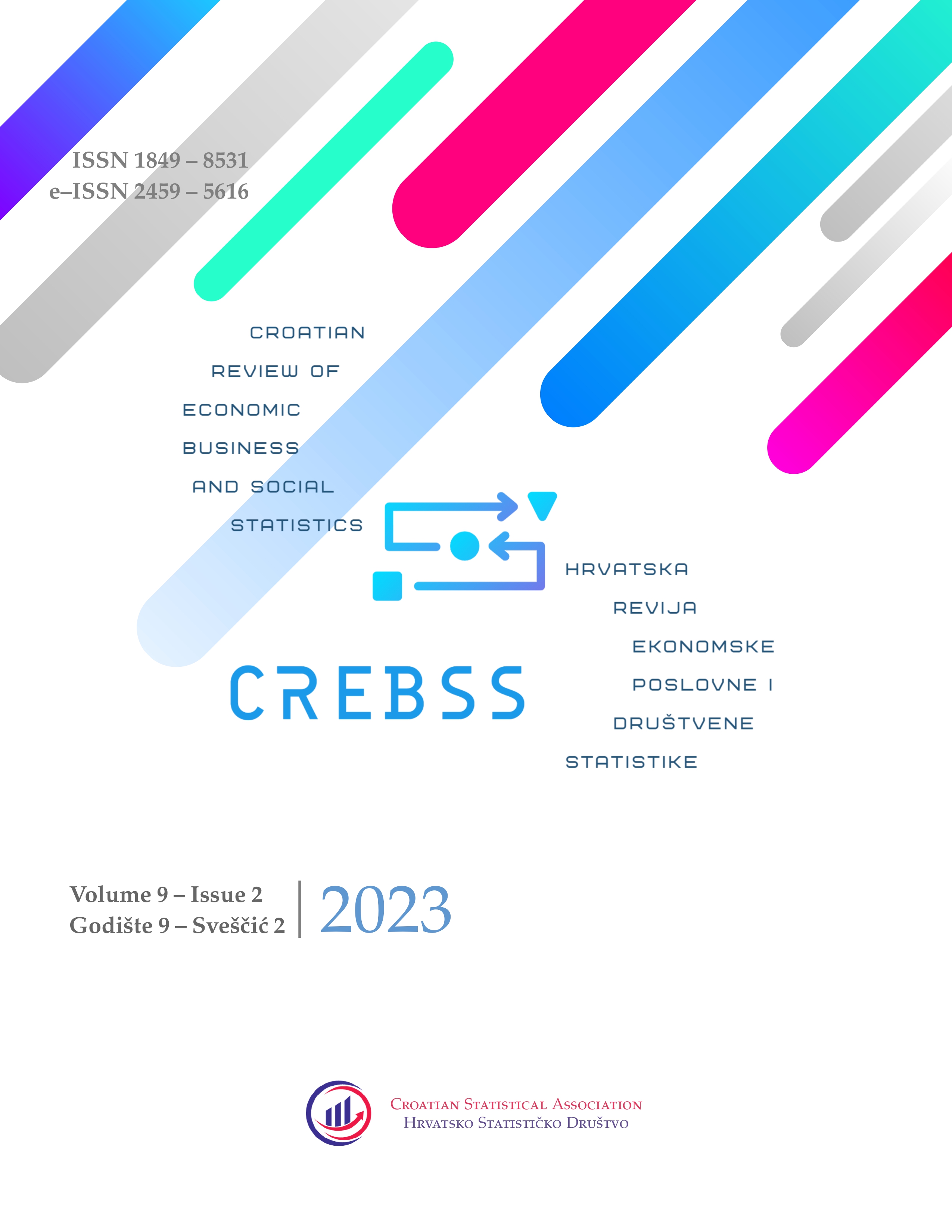The role of labour productivity within Algeria's sustainable economic development: Findings from agricultural sector
DOI:
https://doi.org/10.62366/crebss.2023.2.002Keywords:
agricultural sector, Algeria, ARDL model, labour productivity, sustainable economic developmentAbstract
Despite Algeria's abundant natural resources, achieving sustainable growth and prosperity remains challenging. Amid this, labour productivity within the agricultural sector stands as a silent warrior, holding within its grasp the secrets to propel the Algerian economy forward. Therefore, this study tries to uncover the pivotal role of labour productivity in Algeria's agricultural sector as a beacon for sustainable economic development. Using an autoregressive distributed lag (ARDL) model from 1990-2021, the results reveal that agricultural gross production value, inflation, and population growth are significant determinants of GDP per capita in the short-run, while agricultural value added per worker also emerges as an essential long-run driver. However, agricultural employment is shown to have an insignificant impact, indicating declines in the sector's workforce and neglect in recent years. Overall, the analysis confirms the hypotheses of either short-term or long-term connections between labour productivity and sustainable economic development within Algeria's agricultural sector. These findings illuminate a pathway that suggests revitalising the labour productivity within Algeria's agricultural sector could be a key lever in transforming Algeria's economic landscape towards a more prosperous and sustainable future.
Downloads
Published
How to Cite
Issue
Section
License
Copyright (c) 2023 retained by the author(s)

This work is licensed under a Creative Commons Attribution-NonCommercial-NoDerivatives 4.0 International License.

